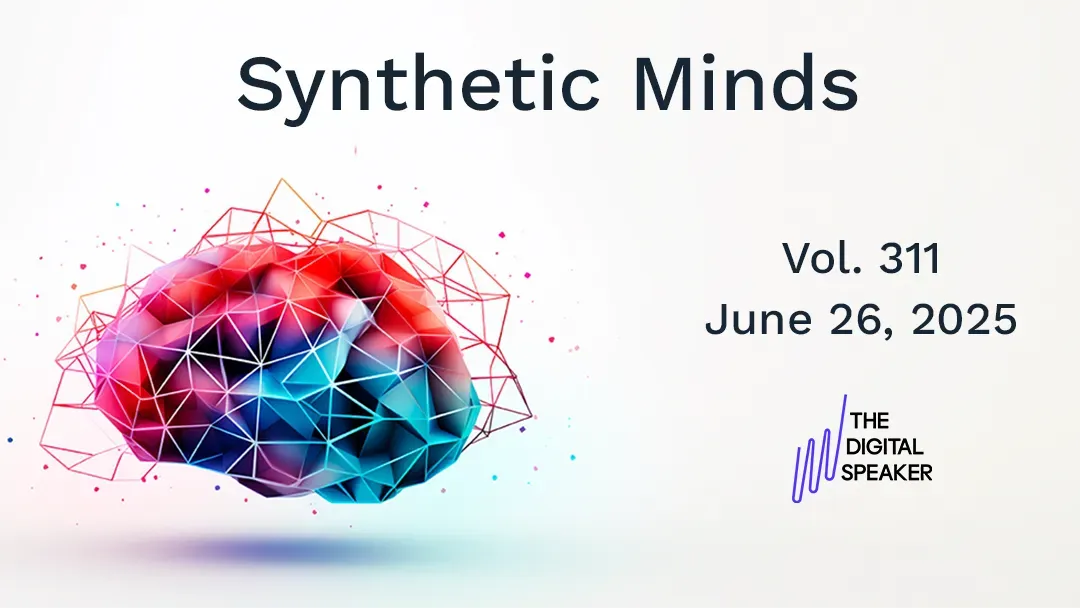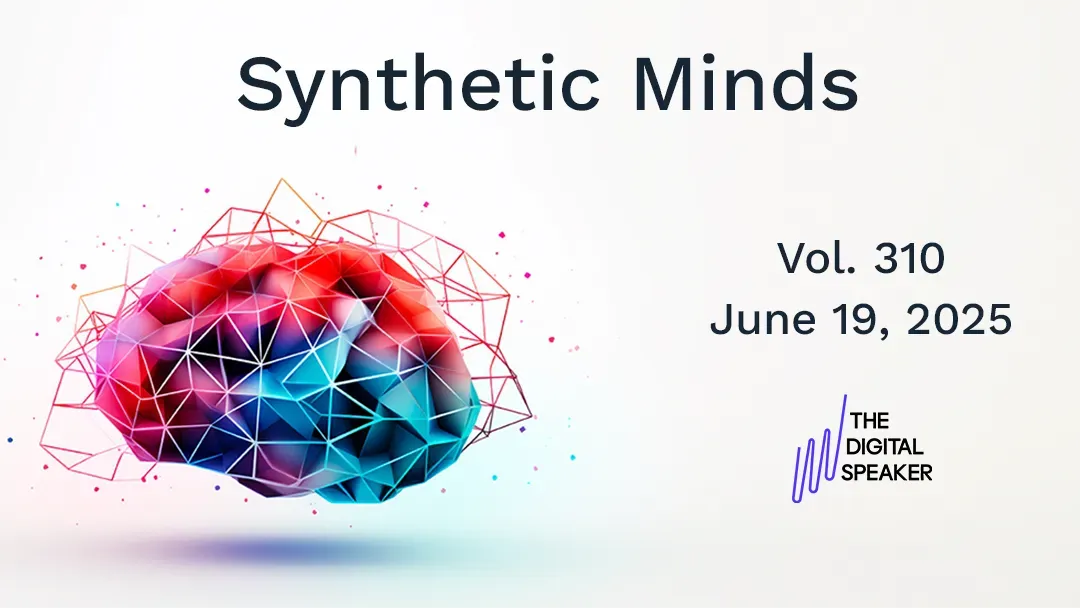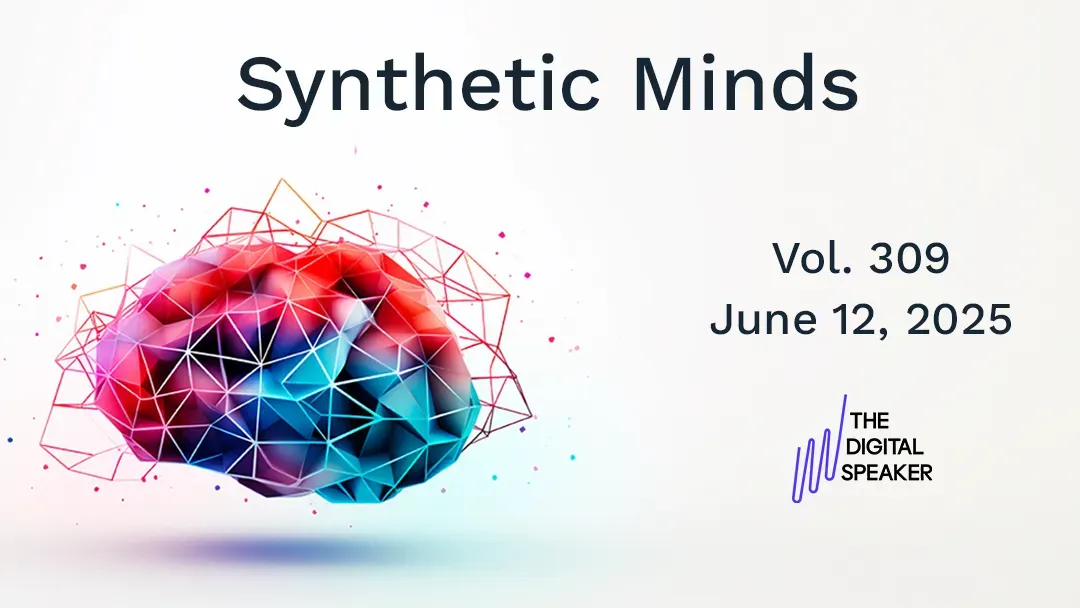Synthetic Minds: Digital actors and the death of crazy monkey pictures
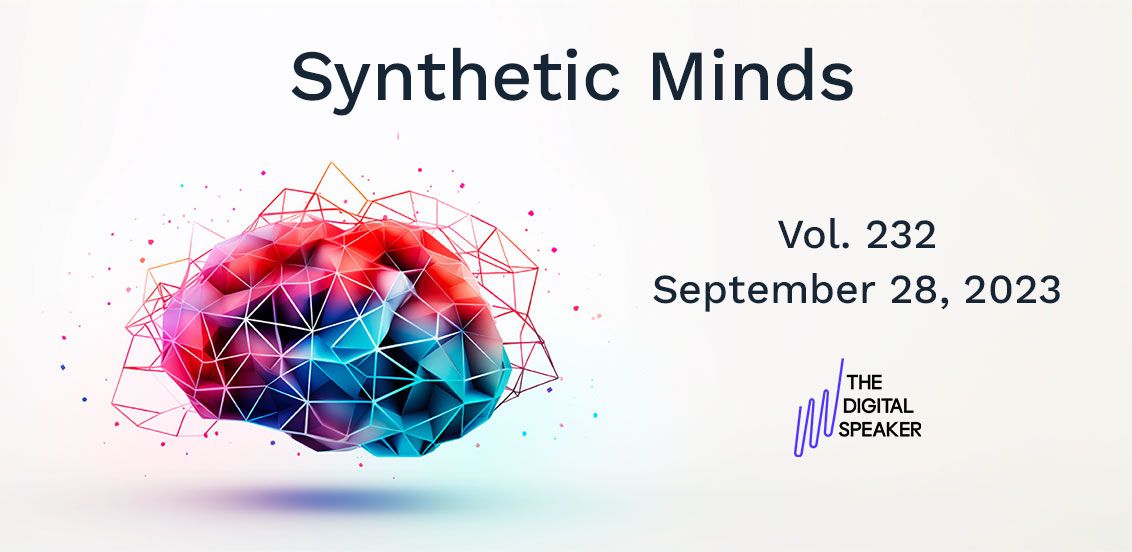
Synthetic Minds
A new name, same newsletter:
If you're wondering where 'the f(x)=e^x' went, don't fret. I decided to rebrand it to 'Synthetic Minds'—no, it's not a Sci-Fi club, but close. The old name was a nod to tech's exponential growth. While the essence of exponential change remains relevant, I believe it's time to refine the focus to capture the nuance of our new reality: a world where synthetic media, data, and even biology will increasingly define our interactions, politics, and perceptions.
'Synthetic Minds' encapsulates this focus. It serves as a mirror to the multifaceted, synthetic elements that are beginning to weave into the fabric of our society. The name acknowledges the blend of artificial and human intelligence that will shape our collective future, posing incredible opportunities and ethical dilemmas.
Thanks for riding along on this upgrade. Buckle up; our synthetic future awaits.
How Human Digital Twins Will Disrupt Entertainment
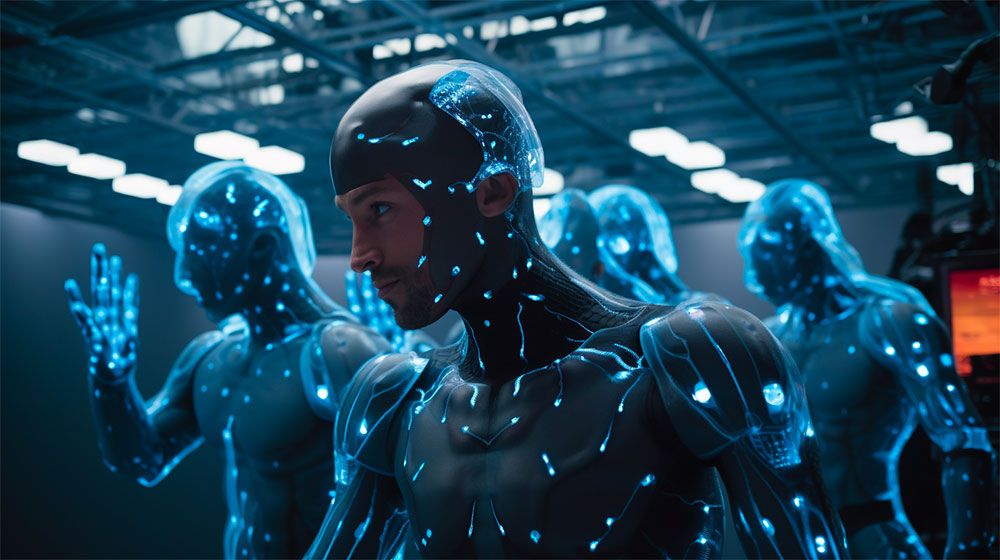
My latest article:
MetaHuman Creator produces incredibly lifelike digital humans with applications in movies, games, and corporate training. While digital actors enable new creative possibilities, their emergence raises concerns about job loss for human actors and control over image rights.
In entertainment, digital actors allow filmmakers to create custom, believable characters cheaply. Small studios could feasibly produce blockbuster films with digital casts. This emerging technology signals massive opportunities but poses risks for human actors.
If embraced prudently, more realistic synthetic actors could unlock creativity in entertainment and business. However, ethical risks must be preemptively addressed as this technology rapidly evolves.
Feel like the pace of the digital revolution is leaving your business in the dust? I've developed a 3-hour workshop for executive leaders and board members to demystify buzzwords like AI, metaverse, and quantum computing, preparing you to steer your organisation into a confident digital future. Don't be among the 49% of businesses that see digital transformation as a threat - seize the opportunity now!
Synthetic Snippets: Weekly Bytes for Your Synthetic Mind
Quick, curated insights to feed your quest for a better understanding of our evolving synthetic future.
1. How internet monkey pictures turned millions into pennies.
The NFT craze of 2021 saw hype around buying digital art lead to inflated prices, bad investments, and big losses. Though promoted as the future, NFTs failed to deliver on promises of community and metaverse integration, leaving many lonely buyers holding now-worthless JPEGs. Despite this, I do believe that NFTs hold immense value as a technology, just not for selling pictures of crazy monkeys. (The Guardian)
2. I, robot writer: when AI poetry moves you, should you use it?
When a writer teamed up with AI to compose an essay on losing her sister, it came up with profound lines that struck a chord. The essay went viral, and people praised the machine's poetic lines. But as more advanced AIs churned out cliches, it appears that these tools can't replace a writer's unique consciousness. Though tempting creatively, could AI allow tech giants to capture literature itself? (Wired)
3. Deepmind plays doctor: AI creates recipes for genetic cures.
Google's DeepMind created an AI to analyse DNA mutations and predict which cause inherited diseases. By leveraging its protein-folding algorithm AlphaFold, AlphaMissense expands DeepMind's foray into biology and provides researchers with a vast dataset to explore the genetic underpinnings of disorders. (Singularity Hub)
4. AI art theft: when inspiration becomes imitation.
Explaining a technical topic in an engaging, humorous way is difficult, and using Google to find examples is nearly impossible. Fortunately, ChatGPT can help find a niche piece by an influential writer to give a spark of creativity. By finding invisible giants, creators can stand on their shoulders and boost innovation. But directly copying others' ideas risks unoriginality. While AI aids discovery, artists must bring original flair. (Every)
Stephen Fry muses on Ai: will it be our Prometheus or our Zeus?
In his signature witty yet erudite style, Stephen Fry explores the promise and perils of artificial intelligence. He argues we must instil moral values in AI to avoid disaster, but questions who can decide them. Though AI may better humanity as Prometheus did, its godlike power could overwhelm us mortals. Yet Fry retains hope: perhaps AI itself can solve the problems it creates. (CogX)
Join my new masterclass - updated twice a month!
Digital transformation is essential for success in today's fast-paced business landscape, yet many organisations struggle with data literacy. Don’t be left behind but join this unique masterclass that will help you unleash digital innovation in your business. Only $99!
Know someone who needs the Synthetic Minds?
Forward it to someone who might like it too.
Subscribe here if it was forwarded to you.


